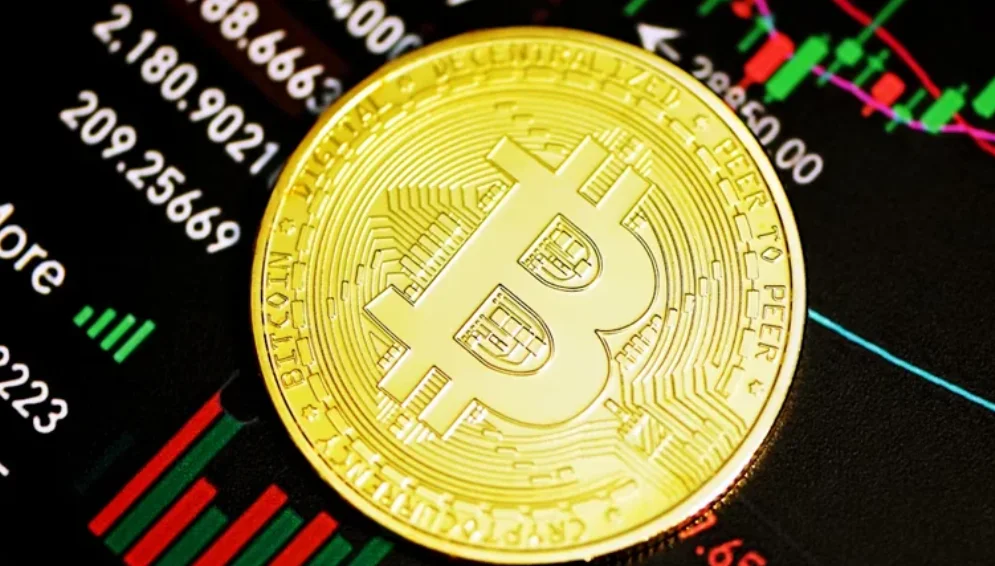More Trouble for Bitcoin: Potential Sell-Off Looms
12.08.2024 8:00 2 min. read Alexander Stefanov
Wrapped Bitcoin (wBTC) makes up about 10% of the reserves for the overcollateralized stablecoin DAI.
Recently, investors are considering removing wBTC as collateral, which could lead to a Bitcoin sell-off if they decide to reduce their exposure due to Bitgo’s recent announcement.
On Saturday, BA Labs highlighted a risk on MakerDAO’s governance forum, mentioning Bitgo’s plan to transfer wBTC control to a joint venture with BiT Global, involving Justin Sun and Tron (TRX). This partnership raised concerns among the MakerDAO community, leading to discussions about dropping wBTC as collateral for DAI.
Some crypto whales are already rethinking their wBTC positions. A continued exit trend could increase Bitcoin selling pressure, affecting its short-term price. Even now Bitcoin lost the $60,000 support and is currently trading at $58,940.
An investor on the forum compared this situation to previous issues with the TUSD stablecoin under Justin Sun, which led to operational and transparency concerns. To mitigate risks, BA Labs proposed reducing wBTC collateral in MakerDAO vaults from $1.25 billion to zero, disabling wBTC borrowing, and lowering its Loan-to-Value ratio to zero. If implemented, wBTC would no longer be used as DAI collateral.
wBTC is widely used to redeem DAI, and its removal could trigger a sell-off and influence other protocols. Investors need to deposit about three times the wBTC’s value to get DAI. For example, one vault holds 1,600.88 wBTC as collateral for a $34.5 million DAI loan, equating to $96.05 million in collateral at current Bitcoin prices. With DAI’s market cap at $5.35 billion and 10% in wBTC, this involves a $1.605 billion collateral stake.
-
1
Metaplanet Raises $515M in First Step Toward Massive Bitcoin Accumulation
25.06.2025 20:00 1 min. read -
2
Trump-Linked Truth Social Pushes for Bitcoin-Ethereum ETF as Crypto Strategy Expands
25.06.2025 19:00 2 min. read -
3
Bitcoin Hashrate Declines 3.5%, But Miners Hold Firm Amid Market Weakness
27.06.2025 21:00 2 min. read -
4
Bitcoin’s Price Closely Mirrors ETF Inflows, Not Corporate Buys
26.06.2025 11:00 2 min. read -
5
Crypto Company Abandons Bitcoin Mining to Focus Entirely on Ethereum Staking
26.06.2025 20:00 1 min. read
Bitcoin ETFs See $1B Inflow as IBIT Smashes Global AUM record
Spot Bitcoin ETFs recorded a massive influx of over $1 billion in a single day on Thursday, fueled by Bitcoin’s surge to a new all-time high above $118,000.
Bitcoin Outlook: Rising U.S. Debt and Subdued Euphoria Suggest More Upside Ahead
As Bitcoin breaks above $118,000, fresh macro and on-chain data suggest the rally may still be in its early innings.
Analysis Firm Explains Why Bitcoin’s Breakout Looks Different This Time
Bitcoin’s surge to new all-time highs is playing out differently than previous rallies, according to a July 11 report by crypto research and investment firm Matrixport.
Bitcoin Reaches New All-Time High Above $116,000
Bitcoin surged past $116,000 on July 11, marking a new all-time high amid intense market momentum.
-
1
Metaplanet Raises $515M in First Step Toward Massive Bitcoin Accumulation
25.06.2025 20:00 1 min. read -
2
Trump-Linked Truth Social Pushes for Bitcoin-Ethereum ETF as Crypto Strategy Expands
25.06.2025 19:00 2 min. read -
3
Bitcoin Hashrate Declines 3.5%, But Miners Hold Firm Amid Market Weakness
27.06.2025 21:00 2 min. read -
4
Bitcoin’s Price Closely Mirrors ETF Inflows, Not Corporate Buys
26.06.2025 11:00 2 min. read -
5
Crypto Company Abandons Bitcoin Mining to Focus Entirely on Ethereum Staking
26.06.2025 20:00 1 min. read


